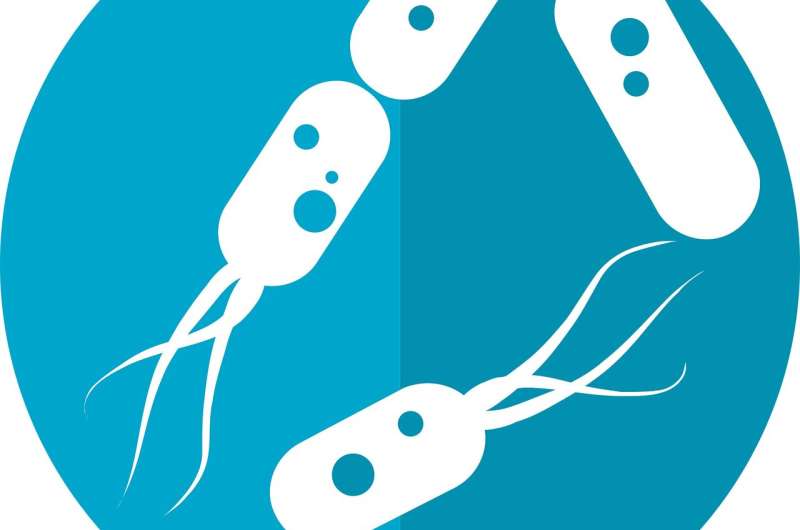Credit: CC0 Public Domain
A team of researchers at the University of Texas Southwestern Medical Center has found that microbes in the small intestines of mice are involved in setting the pace for the gut circadian rhythm. In their paper published in the journal Science, the group describes their study of histone deacetylase 3 (HDAC3) in mice and what they learned from it. Faraz Bishehsari and Ali Keshavarzian with Rush University Medical Center have published a Perspective piece on the work done by the team in the same journal issue.
Most people (and other mammals) have a circadian rhythm—a metabolic clock that controls processes like feeding and sleeping. The most commonly known circadian cycle is the one that governs sleep, but scientists have found that there are multiple circadian rhythms that control different biological systems. Past research has shown that if one of these rhythms gets out of whack, people can experience health problems. Shift workers with changing schedules, for example, are more prone to gaining weight and developing high blood pressure and diabetes. How the circadian rhythms work is still somewhat of a mystery, so the researchers with this new effort wondered if the gut biome might be involved in regulating the body clock in the gut and, perhaps indirectly, weight gain.
To find out if this might be the case, the researchers altered the process of histone acetylation in test mice—this is a process whereby an acetyl is added to the end of a histone protein. It is an important part of the circadian-epigenetic mechanism. In so doing, the team found that bacteria were initiating expression of HDAC3 in the epithelial cells that line the small intestine. And that, in turn, led to synchronizing oscillations involved in gene expression that were involved in metabolizing lipids and transporting nutrients. In contrast, mice with sterilized guts did not exhibit such rhythmic regulation. The researchers also found that HDAC3 played a role in instigating lipid adsorption, which led to obesity. Bishehsari and Keshavarzian note that if the same activity occurs in humans, it could explain why people exposed to light pollution and unhealthy diets are so prone to weight gain.
More information: Zheng Kuang et al. The intestinal microbiota programs diurnal rhythms in host metabolism through histone deacetylase 3, Science (2019). DOI: 10.1126/science.aaw3134
Journal information: Science
© 2019 Science X Network






















